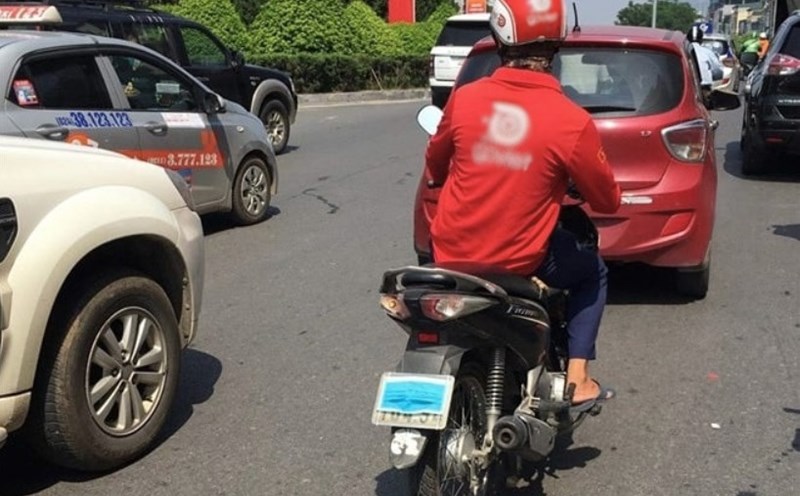"The culprit is gasoline-powered vehicles"
Hanoi is facing a serious air crisis with many consequences. Dr. Hoang Duong Tung - Chairman of the Vietnam Clean Air Network - pointed out worrying studies showing that air pollution has a negative impact on cardiovascular health, increasing the risk of heart attacks and stroke rates. "Women living in air polluted areas are twice as likely to give birth to autistic children as normal. Air pollution is also believed to be related to reduced sperm quality, affecting men's ability to have children," he said.
Regarding the cause, Dr. Hoang Duong Tung affirmed that the main culprit of pollution is personal vehicles running on gasoline, with more than 6 million motorbikes and nearly 800,000 internal combustion engine cars emitting smoke day and night.
Winter weather conditions such as calm winds and humid weather also cause fine dust particles to linger in the air, unable to diffuse. This is the reason why Hanoi is often covered in a thick layer of dust and fog, especially in the early morning and during rush hour.
Go to the root of the problem
To address the root cause of pollution, experts emphasize the need for long-term, synchronous policies.One of the most frequently mentioned solutions is to reduce emissions from traffic.
Dr. Nguyen Si Dung, former Deputy Head of the National Assembly Office, recommended: “Hanoi needs to increase investment in public transport infrastructure, especially electric buses and urban railways.Restricting gasoline vehicles in the central area and providing incentives for people to use green vehicles will bring about clear results.”
Economist Pham Chi Lan suggested that the government should extend the policy of exempting registration fees for electric vehicles, and at the same time study a mechanism to financially support people to switch from fossil fuel vehicles to electric vehicles. “This is not only a measure to reduce pollution but also a driving force to build a greener economy,” she said.
In addition to traffic, strict management of construction activities and waste treatment is also very important. In particular, Ms. Pham Chi Lan emphasized the need to completely ban spontaneous waste burning in suburban areas, and at the same time build more modern waste treatment plants.
Learn from developed countries
Many countries have succeeded in reducing air pollution thanks to strong policies. Norway, for example, has exempted taxes on electric vehicles and invested heavily in charging infrastructure, making it easier for people to switch. In Germany, the government provides direct financial support of up to €2,000 for each citizen who buys a green car.
Dr. Nguyen Chu Hoi, a member of the 15th National Assembly, also mentioned the model of Singapore, which applies high technology to monitor air quality in real time. "Hanoi can learn from how they deploy these monitoring tools, thereby making timely policies," he suggested.
Hanoi cannot change overnight, but taking steps in the right direction will make a big difference. From policies supporting green transportation, strictly controlling emissions to changing public awareness, all need to be implemented synchronously.
As Dr. Nguyen Si Dung shared: “Every action today will determine the appearance of Hanoi tomorrow. The journey to build a green, clean and livable city requires the participation of all of us.”











